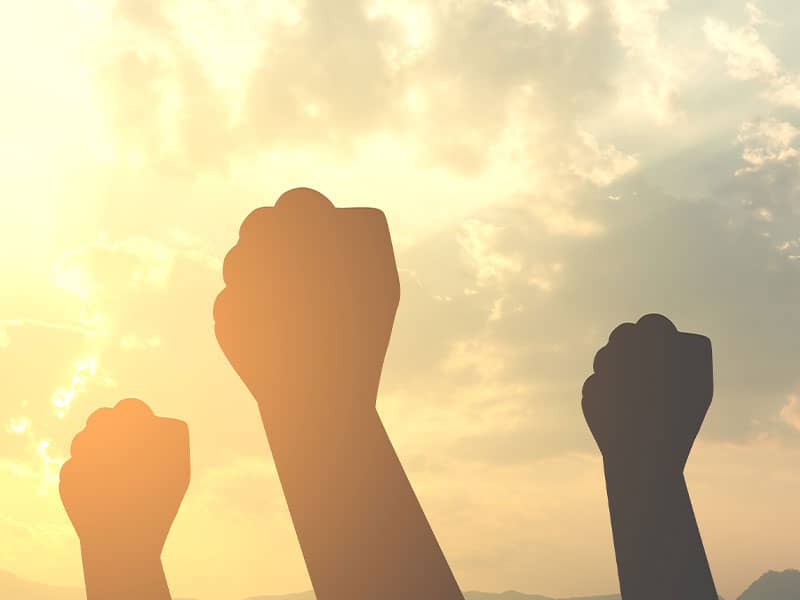Canada appears as well to have virtually no elected Muslim politicians--federal, provincial or even municipal.
Why don't Muslims receive these kinds of honors and fill these kinds of positions in Canada? asks Aziz Khaki, a leader of the new Canadian Muslim Federation.
It's not right that Muslims aren't given such recognition, Khaki says, especially since Muslims now constitute the country's second largest religion after Christianity.
A new voice wants a more prominent role in Canada's multicultural chorus.
At the same time the country's more than 600,000 Muslims marked the holy month of Ramadan by fasting during daylight hours until Wednesday, they also began to come together to change the face of Canadian society so it will better reflect Muslim aspirations.
Muslim groups across the country are stepping up efforts to get their message out on politics, education, health, crime, immigration and foreign affairs. They're championing positions that are conservative on private morality, but liberal on government intervention.
Canada's Muslims, whose numbers are doubling every decade because of high immigration, have largely avoided the public spotlight until now. They've been concentrating on setting up businesses, said British Columbia-based Khaki, as well as building mosques and Muslim private schools. Some have also kept low profiles to avoid being stereotyped as fundamentalists or terrorists.
But now they're flexing their political muscle. They're following the lead of other minority groups--women, homosexuals, Jews, Sikhs -- and trying to emerge from what they feel has been anonymity.
This new battle for attention and influence has been sparked in part by Muslims' fast-rising numbers in Canada, but also by this year's troubles in Israel, where Jews are caught in increasingly violent conflict with Palestinians, most of whom are Muslims.
Canadian Muslims realize they haven't been as effective as Jews in getting out their concerns to the North American public. In response, a coalition of Muslim groups ran newspaper advertisements in Ottawa, the nation's capital, during the federal election campaign, calling on Canada to urge Israel to withdraw from the West Bank and Gaza Strip.
"It's about time for us to be seen and to influence political policy," said Ontario's Mohamed Elmsmasry, chair of the Canadian Muslim Congress.
Another way for federal and provincial governments to start recognizing Muslims is by honoring those who are outstanding, said Khaki. That means government must begin bestowing national titles such as the "Order of Canada" or provincial honors such as the "Order of British Columbia" on Muslims who contribute to society.
It also means federal and provincial governments must start appointing some of the country's many Muslim lawyers as judges, said Khaki, who is also vice president of the Muslim Communities of Canada.
Realizing that Canadian Muslims' lack of recognition has been partly caused by their own insular attitudes, Muslim groups are beginning to encourage Muslims to vote for receptive politicians and enter nomination battles for civic, provincial and federal office.
Muslims want changes in numerous arenas of Canadian life:
-- Education. Muslims would like public schools to provide Muslim students with a place to conduct their noon prayers on Fridays, which is the Muslim sabbath. They also want Canadian companies to grant employees an extended lunch on Fridays to attend mosque. Muslims are also beginning to lobby Canadian colleges and universities that teach courses on Islam, asking them to make sure the instructors are Muslim.
-- Health. Muslim leaders want a national policy that will ensure the country's hospitals are able to serve food that is prepared according to Muslim dietary codes, which parallel Jewish kosher laws. Muslims also want hospitals to provide patients with government-subsidized Muslim spiritual guides similar to the way hospitals currently subsidize some Christian chaplains.
-- Crime. Since Islam forbids all intoxicants, Muslim groups seek stricter laws forbidding young people from using drugs or alcohol. They also want stiffer sentences for anyone who abuses young people.
-- Social services. Despite their get-tough-on-crime approach, Muslim leaders believe the best way to prevent crime is for governments to come to the aid of economically marginalized people, Khaki said. That includes providing proper housing, income supplements and community services for the less fortunate.

